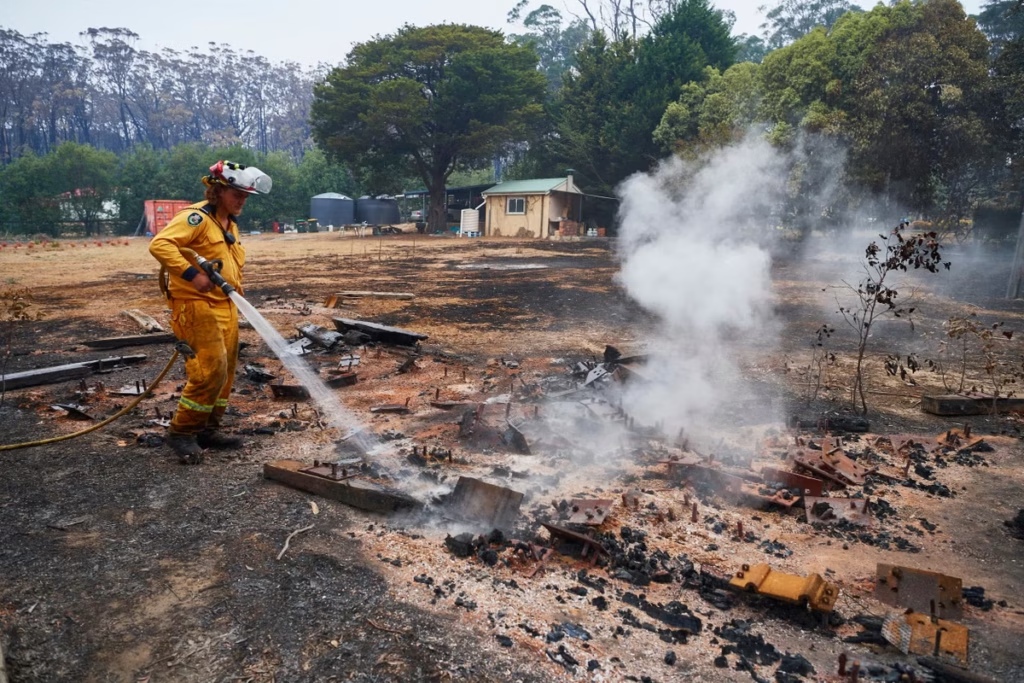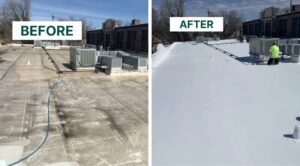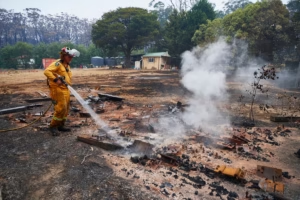
Fire damage is one of the most devastating experiences a property owner can face. Beyond the immediate harm to a structure and belongings, fires can also bring long-term financial consequences, especially when it comes to insurance claims. For property owners in areas like Vancouver, WA, where wildfire risks and other fire hazards are a concern, understanding the role of fire mitigation can be invaluable. Taking steps to prevent or reduce the severity of fire damage not only protects your property but can also simplify and potentially lower the cost of insurance claims.
In this guide, we’ll explore the essential connection between fire mitigation efforts and insurance claims, helping homeowners understand how mitigation can lead to savings and less stress during the claim process.
What Is Fire Mitigation?
Fire mitigation involves a series of actions designed to prevent or minimize the impact of fires on properties. These strategies can range from clearing flammable materials near structures to installing fire-resistant building materials. Fire mitigation is not only beneficial for preventing fires but also plays a significant role in helping property owners manage insurance claims more effectively.
Key Fire Mitigation Strategies
Fire mitigation is multifaceted, and homeowners may adopt several practices to ensure their property is prepared. These can include:
- Creating defensible space: This includes clearing flammable vegetation, brush, and other materials from around the building to slow or prevent the spread of fire.
- Upgrading building materials: Using fire-resistant roofing, siding, and windows can significantly reduce the chance of a structure catching fire.
- Installing fire barriers: Certain types of fire-resistant landscaping and fencing can prevent fires from reaching a property.
- Routine property maintenance: Regularly cleaning gutters, trimming trees, and checking electrical systems can prevent accidental fires.
These preventive steps not only help protect a property from fire but can also influence how insurance companies evaluate claims following a fire event.
How Fire Mitigation Affects Insurance Claims
Fire mitigation efforts can have a notable impact on insurance claims, especially in areas prone to wildfires or accidental fires. By demonstrating that preventive measures were taken, property owners can often experience a smoother and more favorable claims process. Here’s how fire mitigation can affect your insurance outcomes:
1. Lower Insurance Premiums
Many insurance providers offer lower premiums to homeowners who have taken steps to mitigate fire risks. Installing fire-resistant materials or maintaining a defensible space around the property signals to insurance companies that the property is less susceptible to severe damage. As a result, insurance companies may view such properties as lower-risk, resulting in potentially lower premiums.
2. More Favorable Claim Settlements
If a fire does occur, having mitigation strategies in place can lead to a more favorable settlement. Insurance adjusters take mitigation efforts into account, often viewing these efforts as evidence of the owner’s responsible property management. This can streamline the claims process, reducing the need for detailed investigations and resulting in a more straightforward, expedited claim resolution.
3. Reduced Risk of Total Loss
Properties that have been prepared for potential fire events are less likely to suffer total loss. Fire-resistant materials, strategic landscaping, and other protective measures can contain or reduce the extent of damage. With mitigation efforts in place, property owners may find that claims are smaller and involve less complexity, ultimately resulting in less time and effort to restore the property.
4. Easier Documentation for Claims
Insurance claims require extensive documentation of the damages. When fire mitigation is part of a property’s upkeep, owners often have records, inspections, or photos showing their preventive measures. This documentation can be invaluable during the claims process, providing evidence that mitigation steps were taken seriously and systematically, which can make insurance adjusters more receptive to the claim.
The Importance of Proactive Mitigation for High-Risk Areas
In regions like Vancouver, WA, where the risks of wildfire are real, fire mitigation isn’t just a recommendation—it’s a necessity. Areas prone to wildfires or dry climates increase the probability of fire hazards, making it essential for property owners to take preventive action.
In high-risk areas, insurance companies may require property owners to implement mitigation measures as a condition for policy approval. For example, insurance providers may specify that properties must have a certain amount of defensible space or that homeowners maintain fire-resistant landscaping. Adhering to these requirements can ensure that your property remains insured, while also protecting it from potential fire damage.
How Fire Mitigation Saves Property Owners Thousands
Investing in fire mitigation strategies upfront may seem costly, but these preventive measures can result in long-term savings by reducing potential repair and restoration costs. Here’s a closer look at how mitigation can directly save you money:
1. Avoiding Major Repairs
Effective fire mitigation significantly decreases the severity of fire damage. Instead of facing costly repairs for extensive fire or smoke damage, property owners who have implemented mitigation measures may only need minor repairs, which are less expensive and less time-consuming.
2. Saving on Health-Related Expenses
Beyond structural damage, fires can also lead to health issues from smoke inhalation or exposure to hazardous materials. Fire mitigation can reduce these health risks by containing fire damage or preventing it from spreading indoors, protecting residents and lowering potential health-related costs.
3. Decreasing Temporary Housing Costs
Fires that lead to extensive damage often require residents to relocate temporarily. This can add additional costs for hotel stays or rental accommodations during repairs. With fire mitigation, however, properties are more likely to remain habitable or require less repair time, minimizing or even eliminating temporary housing expenses.
4. Improving Home Resale Value
Fire-resistant features and a clear history of fire prevention steps can make a property more attractive to buyers, especially in high-risk areas. Homebuyers may be willing to pay a premium for a property that is already prepared for potential fire hazards, ultimately increasing the resale value.
Frequently Asked Questions about Fire Mitigation and Insurance Claims
Q: Will my insurance cover fire mitigation costs?
A: Generally, insurance policies do not cover fire mitigation costs, as these are considered preventive measures. However, some insurance providers may offer discounts or incentives for homeowners who invest in fire mitigation.
Q: What documentation should I keep to support my mitigation efforts?
A: It’s recommended to keep records of any upgrades, inspections, or maintenance related to fire prevention. Photos, receipts, and contractor invoices are also helpful for documenting the mitigation steps taken.
Q: Can I handle fire mitigation on my own, or should I hire a professional?
A: While certain steps, like clearing debris or maintaining defensible space, can be handled independently, professional fire mitigation services provide specialized expertise and equipment to ensure thorough preparation.
Q: How does fire mitigation affect insurance claims in high-risk areas?
A: In high-risk areas, mitigation measures can improve the chances of a successful and expedited insurance claim by demonstrating that preventive steps were taken. This can make insurers more likely to settle claims favorably.
Q: Does fire mitigation help in areas without wildfire risks?
A: Yes, even in areas with low wildfire risks, fire mitigation can protect against accidental fires from electrical faults, cooking incidents, and other hazards, ensuring that insurance claims are more manageable.
Conclusion
Taking proactive steps toward fire mitigation can protect not only your property but also your finances. By investing in fire-resistant materials, creating defensible space, and regularly maintaining your property, you can reduce the likelihood of fire damage and ease the insurance claim process. For residents of Vancouver, WA, and nearby areas like Portland and Camas, effective fire mitigation is essential in protecting both home value and personal safety.
If you’re ready to take the next step in safeguarding your property from fire, consider reaching out to Prestige NW Restoration. Their team can provide the expertise and tools necessary to implement comprehensive fire mitigation strategies, helping you protect your property and make insurance claims less daunting. Contact Prestige NW Restoration at (360) 334-3624 today to learn more about how they can help protect your investment and save you money in the long run.





